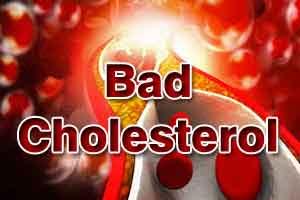- Home
- Editorial
- News
- Practice Guidelines
- Anesthesiology Guidelines
- Cancer Guidelines
- Cardiac Sciences Guidelines
- Critical Care Guidelines
- Dentistry Guidelines
- Dermatology Guidelines
- Diabetes and Endo Guidelines
- Diagnostics Guidelines
- ENT Guidelines
- Featured Practice Guidelines
- Gastroenterology Guidelines
- Geriatrics Guidelines
- Medicine Guidelines
- Nephrology Guidelines
- Neurosciences Guidelines
- Obs and Gynae Guidelines
- Ophthalmology Guidelines
- Orthopaedics Guidelines
- Paediatrics Guidelines
- Psychiatry Guidelines
- Pulmonology Guidelines
- Radiology Guidelines
- Surgery Guidelines
- Urology Guidelines
Bempedoic Acid / Ezetimibe Combo significantly lowers LDL-C and hsCRP, finds clinical trial

Bempedoic Acid / Ezetimibe combo significantly lowers LDL-C and hsCRP, finds a recent study.
A fixed-dose combination (FDC) tablet of bempedoic acid/ezetimibe significantly lowered low-density lipoprotein cholesterol (LDL-C) versus placebo other oral monotherapies, shows results from a phase 3 clinical trial. The study has been published in the European Journal of Preventative Cardiology,
The study has found that the combination drug appeared to have a favorable safety profile and was well tolerated when added to maximally tolerated statin therapy in patients with hypercholesterolemia and high risk of cardiovascular disease (CVD).
The study showed that bempedoic acid/ezetimibe FDC tablet lowered LDL-C by 38% (placebo-corrected) and reduced hsCRP by 35% (from baseline) in patients who received maximally tolerated statin therapy.
Bempedoic acid/ezetimibe fixed-dose combination (FDC) tablet is an oral, once-daily ATP citrate lyase (ACL) inhibitor that reduces cholesterol synthesis in the liver.
Bempedoic acid and its FDC tablet are currently undergoing regulatory review for marketing authorization by the European Medicines Agency (EMA) and by the United States Food and Drug Administration (FDA).
Christie M Ballantyne, Department of Medicine, Baylor College of Medicine, USA, and colleagues aimed to evaluate the efficacy and safety of bempedoic acid 180 mg and ezetimibe 10 mg FDC in lowering cholesterol among patients with hypercholesterolemia and a high risk of cardiovascular disease receiving maximally tolerated statin therapy.
The use of statins to manage hypercholesterolemia is well established, but there remains a large number of patients in Europe at high risk of CVD who are unable to reach their target LDL‑C level due to, in many cases, insufficient statin efficacy at maximally tolerated doses.
The trial enrolled patients at high risk of CVD due to atherosclerotic cardiovascular disease, heterozygous familial hypercholesterolemia, or multiple cardiovascular disease risk factors. They were randomly assigned (2:2:2:1) to treatment with FDC bempedoic acid 180 mg, ezetimibe 10 mg or placebo added to stable background statin therapy for 12 weeks.
The primary efficacy endpoint was the percentage change from baseline to week 12 in low-density lipoprotein cholesterol.
Key findings of the study include:
- Among the 301 patients included in the primary analysis, the mean baseline low-density lipoprotein cholesterol level was 3.87 mmol/L (149.8 mg/dL).
- At week 12, the fixed-dose combination lowered low-density lipoprotein cholesterol (–36.2%) significantly more than placebo (1.8% (placebo-corrected difference –38.0%), ezetimibe alone (–23.2%) or bempedoic acid alone (–17.2%).
- The fixed-dose combination lowered low-density lipoprotein cholesterol levels similarly across subgroups, including patients receiving high-intensity, other-intensity or no statin therapy.
- Improvements with the fixed-dose combination were also observed in secondary efficacy endpoints, including high-sensitivity C-reactive protein.
- Fixed-dose combination treatment had a generally similar safety profile compared with bempedoic acid, ezetimibe or placebo.
"The results of this study show that the bempedoic acid / ezetimibe FDC tablet provided significant additional LDL-C lowering and hsCRP reductions when added to maximally tolerated statin therapy," said Dr. Ballantyne. "For patients who are not at their goal levels despite currently accessible therapies, the LDL-C lowering and hsCRP reductions seen with the bempedoic acid / ezetimibe FDC tablet support that this could be a very important treatment option."
To read the complete study log on to https://doi.org/10.1177/2047487319864671

Disclaimer: This site is primarily intended for healthcare professionals. Any content/information on this website does not replace the advice of medical and/or health professionals and should not be construed as medical/diagnostic advice/endorsement or prescription. Use of this site is subject to our terms of use, privacy policy, advertisement policy. © 2020 Minerva Medical Treatment Pvt Ltd